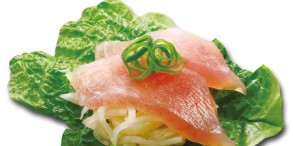Never Knew Monkeys Love Scallion (Welsh onion or negi)
Scallion - most of our readers may perhaps be more familiar with Welch onion but we Japanese are more comfortable with "Negi". Or some of you may call it long onion. While my stay in the states for nearly two decades, I seldom saw this kind of onion popularly used day to day, so I'm not so certain if you follow what I'm referring to. But, then, Let me proceed anyway.
Negi happened to be a renowned local produce in Fukaya, Saitama, and the monkeys in a zoo in Nagatoro, Saitama, were presented with crates of negi to tide over the chilly days this winter. Negi for monkeys?
Fresh 20 kilograms of negi came as a gift from Fukaya Ciity, Saitama, a nationally known production site, February 20. The zoo, Hodosan Mini Zoo, is located near the summit of a 497-meter hill and 100 or so monkeys were there to receive the gift.
By the way, in Japan humans consume negi in all different ways to "keep warm" but by chewing it raw. Now, the monkeys were offered the gift but for a while there none of them dared touch it, observing one another which would try it first. Then, a courageous one grabbed it to a have a bite. He loved it, and the rest ran for their shares.
The zoo attendants say Fukaya Negi tastes sweet and helps to "warm up". Monkeys enjoying negi is a rare sight and certainly impressed on a male visitor: "I've never seen a monkey devouring negi! Is it honestly good to keep you warm?"
Out of curiosity, I've done a brief survey how true that is. A theory has it that the white part of negi happens to contain plenty of a substance allicin-turned Allithiamine that does help to "keep warm". So, shall we say - the monkeys at Hodosan Mini Zoo are aware of the theory?










